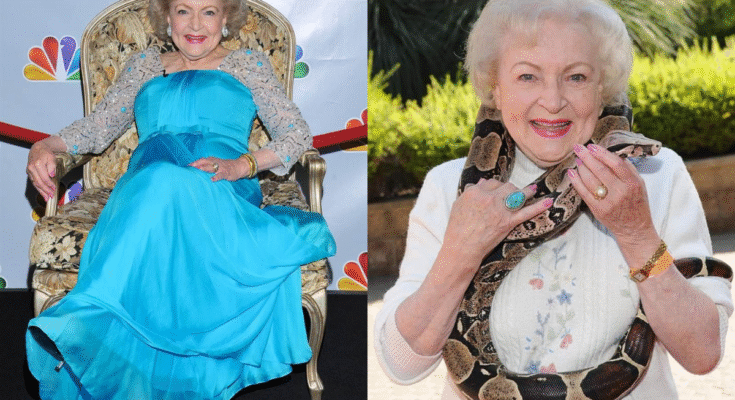Introduction: The Naive Optimist Who Stole America’s Heart
Rose Nylund represents one of television’s most endearing and complex characters, a masterful blend of innocence and wisdom, naivety and surprising depth. Portrayed by the legendary Betty White in NBC’s groundbreaking sitcom “The Golden Girls” (1985-1992), Rose transformed what could have been a one-dimensional “dumb blonde” stereotype into a multi-faceted character who challenged assumptions about intelligence, kindness, and the nature of wisdom itself.
In an era when television often portrayed older women as either wise matriarchs or comic relief, Rose Nylund emerged as something entirely different: a woman whose apparent simplicity masked profound emotional intelligence, whose endless stories from St. Olaf contained unexpected truths, and whose unwavering optimism in the face of life’s hardships provided both humor and inspiration. Betty White’s masterful performance turned Rose into an icon, demonstrating that kindness is not weakness, that different types of intelligence deserve respect, and that maintaining childlike wonder in one’s golden years is both possible and admirable.
Early Life and St. Olaf Background
The Minnesota Childhood
Rose Lindstrom was born in St. Olaf, Minnesota, a small farming community populated primarily by Norwegian immigrants. Her exact birth year was never definitively established in the series, though she was portrayed as being in her early 60s when the show began. St. Olaf, as presented through Rose’s countless stories, was a surreal place where logic took a backseat to tradition, and where the peculiar was commonplace.
Raised in an orphanage after being abandoned as a baby, Rose’s early life was marked by both hardship and the profound kindness of her adoptive community. The monks at St. Gustav’s Orphanage, particularly Brother Martin, provided her with a moral foundation that would guide her throughout her life. Despite the potential trauma of abandonment, Rose’s stories of her childhood were invariably positive, reflecting either remarkable resilience or selective memory—perhaps both.
The Lindstrom Family
Rose was eventually adopted by the Lindstrom family, simple farmers who raised her with traditional Midwestern values. Her adoptive parents, though rarely mentioned in detail, instilled in her a strong work ethic, deep religious faith, and an appreciation for simple pleasures. The Lindstrom family’s influence shaped Rose’s worldview, creating a woman who found joy in small things and maintained faith in human goodness despite evidence to the contrary.
Her stories about the Lindstrom family traditions, from their unusual holiday celebrations to their peculiar food preparations, painted a picture of a loving, if eccentric, family unit. These tales, while often met with exasperation from her Miami roommates, revealed the deep cultural roots that grounded Rose’s identity.
Education in St. Olaf
Rose’s formal education took place entirely in St. Olaf, at schools where curriculum apparently included courses like “Advanced Butter Churning” and “Theoretical Cream Separation.” While her roommates often mocked her education, Rose’s knowledge, though specialized and often irrelevant to modern Miami life, was extensive within its unique parameters.
Her academic experience reflected St. Olaf’s isolated, agricultural nature. She excelled in subjects relevant to farm life and small-town existence but remained naive about broader worldly matters. This educational background created the fascinating dichotomy of Rose’s character: simultaneously knowledgeable and ignorant, wise and naive.
Marriage to Charlie Nylund
A Love Story
Rose’s marriage to Charlie Nylund was the defining relationship of her pre-Miami life. They met at a local dance when Rose was young, and their courtship followed traditional small-town patterns. Charlie, an insurance salesman, represented stability and love in Rose’s life. Their marriage lasted over thirty years and produced five children, creating the large, loving family Rose had perhaps yearned for given her orphan beginnings.
Their relationship, as Rose described it, was characterized by simple pleasures, mutual respect, and deep affection. Charlie’s patience with Rose’s unique perspective on life, and her devotion to him, created a partnership that, while perhaps lacking in passion by Blanche’s standards, provided Rose with decades of happiness and security.
Charlie’s Death
Charlie’s sudden death from a heart attack while making love marked a turning point in Rose’s life. This event, which occurred approximately a year before the series began, forced Rose to confront life as a widow and ultimately led to her move to Miami. The manner of Charlie’s death became a recurring source of both comedy and poignancy throughout the series, with Rose sometimes expressing guilt, other times pride, about the circumstances.
The loss of Charlie revealed Rose’s remarkable resilience. Despite the devastating nature of her loss, she chose to start anew rather than remain in St. Olaf surrounded by memories. This decision showed courage and adaptability that contradicted her seemingly fragile nature.
Life in Miami
The Move to Sunshine
Rose’s decision to leave St. Olaf for Miami represented a dramatic life change. Leaving behind everything familiar—her children, her community, her entire way of life—Rose embarked on an adventure that would have been daunting for anyone, let alone a widow in her 60s who had never lived outside a small Minnesota town.
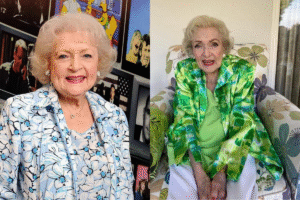
The culture shock of moving from rural Minnesota to urban Florida provided endless comic possibilities, but also showcased Rose’s adaptability. While she never fully abandoned her St. Olaf sensibilities, she learned to navigate city life, developing new skills and confidence along the way.
Finding Family at 6151 Richmond Street
Answering Blanche’s advertisement for roommates led Rose to the family she didn’t know she needed. The house at 6151 Richmond Street became more than just accommodation; it became home in the truest sense. The friendship she found with Dorothy, Blanche, and Sophia filled the void left by Charlie’s death and her children’s absence.
Rose’s dynamic with each roommate was unique. With Dorothy, she was often the student to Dorothy’s teacher, though Rose’s emotional intelligence frequently surpassed Dorothy’s intellectual prowess. With Blanche, she was both scandalized and fascinated confidante. With Sophia, she was the frequent target of jokes but also the recipient of motherly affection.
Personality and Characteristics
The Nature of Rose’s Intelligence
Rose’s intelligence became one of the show’s most fascinating aspects. While initially portrayed as simply naive or dim, the character evolved to reveal different types of intelligence. Rose possessed remarkable emotional intelligence, often understanding people’s feelings and motivations better than her more intellectually gifted roommates. Her ability to see the good in people, while sometimes leading to exploitation, also allowed her to connect with others in profound ways.
Her specialized knowledge was extensive within specific areas. She knew everything about dairy farming, Scandinavian traditions, and small-town life. Her stories, while seemingly ridiculous, often contained practical wisdom disguised as folksy nonsense. This suggested that Rose’s intelligence operated on a different frequency than traditional academic intelligence.
Optimism as Philosophy
Rose’s relentless optimism wasn’t mere simple-mindedness; it was a conscious choice and survival mechanism. Having experienced abandonment, orphanhood, and widowhood, Rose could have become bitter. Instead, she chose to focus on life’s positives, maintaining a worldview that, while sometimes frustrating to her more cynical roommates, provided emotional ballast for the household.
This optimism wasn’t blind—Rose experienced disappointment, anger, and sadness—but she consistently chose hope over despair. Her ability to maintain this perspective in the face of life’s challenges revealed remarkable strength of character.
Hidden Depths
Throughout the series, glimpses of Rose’s complexity challenged initial impressions. Her occasional displays of cunning, particularly when motivated to help her friends, showed strategic thinking abilities. Her past revelation about using prescription drugs after Charlie’s death revealed struggles with grief and dependency. Her ability to speak multiple languages (albeit mostly Scandinavian ones) demonstrated learning capacity.
These revelations suggested that Rose’s simple presentation might be partially performative, either as a defense mechanism or as a way to move through the world that had served her well. The question of how much Rose knew about how others perceived her added layers to her character.
Professional Life
Counseling Career
Rose’s work as a grief counselor at the local hospital represented one of her most significant character developments. Despite lacking formal psychological training, Rose’s personal experience with loss and natural empathy made her surprisingly effective in this role. Her unconventional methods, often involving St. Olaf stories or simple physical comfort, provided what traditional therapy might miss: genuine human connection.
Her success in this field challenged assumptions about professional qualifications versus life experience. Rose’s ability to help others through grief validated her emotional intelligence and showed that wisdom comes in many forms.
Various Employment
Throughout the series, Rose held various positions, from working at a television station to attempting different business ventures. Each job revealed different facets of her character. Her work at the television station, particularly as assistant to the consumer reporter Enrique Mas, showed her ability to adapt to modern media while maintaining her authentic self.
Her brief stint as a producer’s assistant demonstrated both her work ethic and her vulnerability to exploitation. These experiences in the working world, coming after decades as a housewife, showed Rose’s courage in developing new skills and facing new challenges in her 60s.
Relationships and Romance
Dating After Charlie
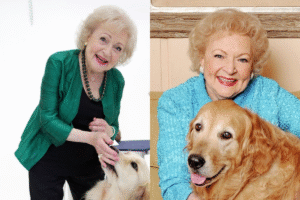
Rose’s attempts to date after Charlie’s death provided both comedy and poignancy. Her naive approach to modern dating, combined with genuine desire for companionship, created situations that ranged from hilarious to heartbreaking. Unlike Blanche’s confident sexuality or Dorothy’s cautious approach, Rose brought an innocent enthusiasm to romance that was both refreshing and concerning.
Her dating experiences revealed the challenges facing widowed older women: the smaller pool of available partners, the complexity of starting over after decades of marriage, and the difficulty of finding someone who could measure up to an idealized deceased spouse.
Significant Relationships
Miles Webber/Nicholas Carbone
Rose’s most significant relationship was with Miles Webber, later revealed to be Nicholas Carbone in witness protection. This relationship, spanning multiple seasons, showed Rose capable of deep, mature love. The revelation of Miles’ true identity tested Rose’s capacity for forgiveness and adaptation, revealing strength beneath her sweet exterior.
The complexity of loving someone in witness protection, dealing with his deception, and navigating the danger his past brought into her life showed Rose handling adult challenges with surprising sophistication. Her eventual acceptance of Miles’ past and the complications it brought demonstrated emotional maturity and genuine love.
Al Beatty
Rose’s relationship with Al Beatty represented a different kind of connection. Their shared simplicity and similar worldviews created an easy companionship that didn’t challenge Rose the way Miles did. While ultimately not her final choice, this relationship showed Rose exploring what she wanted from romance in her later years.
Other Romantic Encounters
Rose’s various romantic encounters, from the impotent boyfriend to the man who reminded her of Charlie, each taught her something about herself and what she wanted from relationships. Her ability to maintain optimism despite romantic disappointments showed remarkable resilience.
Family Relationships
Her Children
Rose’s five children—Kirsten, Bridget, Gunilla, Adam, and Charlie Jr.—remained largely off-screen throughout the series, but their presence in Rose’s life was constantly felt. Her relationships with them revealed the challenges of long-distance parenting and the complexity of maintaining family bonds while building a new life.
The tension between Rose’s love for her children and her need for independence created realistic family dynamics. Her children’s occasional disapproval of her choices, particularly regarding romance and lifestyle, showed Rose navigating the reversal of parent-child dynamics that often comes with aging.
Her Relationship with Sophia
While not biological family, Rose’s relationship with Sophia became one of the series’ most touching dynamics. Despite being the frequent butt of Sophia’s jokes about her intelligence, Rose received genuine maternal affection from Dorothy’s mother. Sophia’s protective instincts toward Rose revealed the older woman’s recognition of Rose’s vulnerability and value.
Their relationship demonstrated that family bonds can be chosen and that intergenerational friendships can provide the support and love traditionally expected from blood relatives.
St. Olaf Stories: Wisdom in Absurdity
The Narrative Function
Rose’s stories about St. Olaf served multiple narrative purposes. Comedically, they provided reliable laughs through their absurdity. Structurally, they offered breathing room in heavy episodes. But more significantly, they revealed Rose’s worldview and often contained unexpected wisdom or relevance to the situation at hand.
The stories functioned as modern folktales, using humor and absurdity to convey truths about human nature. Whether discussing the St. Olaf Woman of the Year pageant or the Festival of the Dancing Herring, Rose’s tales often circled back to themes of community, perseverance, and finding joy in simple things.
Cultural Heritage
Through Rose’s stories, the show explored themes of cultural identity and the immigrant experience in America. St. Olaf, with its Norwegian traditions and insular community, represented the kind of ethnic enclaves that helped preserve cultural heritage while adapting to American life.
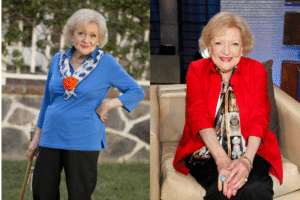
Rose’s pride in her St. Olaf heritage, despite others’ mockery, showed the importance of maintaining cultural connections. Her stories preserved not just personal memories but a way of life that was disappearing in modern America.
The Psychology of Storytelling
Rose’s compulsive storytelling revealed psychological depths. The stories served as a connection to her past, a way to process current events, and a means of maintaining her identity in a new environment. Her need to share these stories, even when met with eye-rolls and groans, showed the human need for narrative and connection to one’s roots.
Rose’s Unique Wisdom
Emotional Intelligence
Rose’s emotional intelligence often surpassed her roommates’ intellectual intelligence. She could sense when someone was hurting, even when they tried to hide it. Her responses to emotional situations, while sometimes unconventional, often provided exactly what was needed: comfort without judgment, presence without pressure.
Her ability to forgive quickly, to see past people’s flaws to their essential humanity, and to maintain relationships despite conflicts showed sophisticated emotional processing. Rose understood that being right was less important than being kind, a wisdom that eluded her more intellectually gifted friends.
Practical Skills
Despite her naive exterior, Rose possessed numerous practical skills from her farm upbringing. She could cook, bake, sew, and handle various household emergencies. Her knowledge of home remedies, while sometimes bizarre, occasionally proved effective. These skills, dismissed as old-fashioned by others, proved valuable in various situations.
Moral Compass
Rose’s strong moral compass, developed through her religious upbringing and small-town values, provided an ethical anchor for the household. While her roommates might scheme or take moral shortcuts, Rose consistently advocated for doing the right thing, even when it was difficult or costly.
Her morality wasn’t rigid or judgmental; she could accept human frailty while maintaining her own standards. This balance between personal ethics and acceptance of others showed sophisticated moral reasoning.
Health Challenges and Vulnerabilities
Heart Attack Episode
Rose’s heart attack episode marked one of the series’ most dramatic moments. The health crisis forced her to confront mortality and sparked existential questions about how to live her remaining years. Her fear of dying as Charlie had, during intimacy, created a barrier to romantic relationships that she had to overcome.
The aftermath of the heart attack showed Rose dealing with vulnerability and fear while maintaining her essential optimism. Her struggle to balance health consciousness with living fully reflected real challenges faced by aging adults.
Addiction Issues
The revelation that Rose had struggled with prescription drug addiction after Charlie’s death added unexpected depth to her character. This admission showed that her sunny disposition wasn’t natural or easy but was chosen despite experiencing the same dark moments as anyone else.
Her ability to overcome addiction and rebuild her life showed strength that contradicted her fragile appearance. This storyline, while brief, acknowledged that even the most optimistic people face serious struggles.
Age Discrimination
Rose faced age discrimination in various forms throughout the series, particularly in employment situations. Her experiences highlighted the challenges older workers face when trying to remain professionally active. Despite her experience and work ethic, Rose often found herself dismissed or undervalued because of her age.
Cultural Impact and Legacy
Subverting the Dumb Blonde Stereotype

Rose Nylund revolutionized the “dumb blonde” trope by revealing it as multi-dimensional rather than simply dismissing it. While Rose exhibited some stereotypical traits, the character’s depth, kindness, and hidden wisdom transformed what could have been an offensive caricature into a beloved, complex character.
Betty White’s performance was crucial to this transformation. Her comic timing, combined with an underlying intelligence in her portrayal, suggested that Rose’s simplicity was more complicated than it appeared. This nuanced performance influenced how similar characters would be written and performed in subsequent shows.
Representation of Midwestern Values
Rose provided rare positive representation of rural Midwestern culture on television. While her St. Olaf stories were absurd, the values they represented—community, hard work, tradition, and kindness—were treated with respect. This portrayal acknowledged the diversity of American experiences beyond coastal urban centers.
The Power of Kindness
In a television landscape often dominated by cynicism and snark, Rose’s genuine kindness was revolutionary. She showed that niceness wasn’t weakness, that optimism wasn’t stupidity, and that choosing to see the best in people was a form of strength. This message resonated with audiences tired of negativity.
Betty White’s Performance
Comic Genius
Betty White’s performance as Rose showcased masterful comic timing and technique. Her ability to deliver absurd St. Olaf stories with complete sincerity, to maintain Rose’s innocence without making her annoying, and to find humor in simplicity without mockery demonstrated exceptional skill.
White’s background in television comedy, spanning decades before The Golden Girls, informed her portrayal. She understood how to make Rose funny without making her the joke, a crucial distinction that maintained the character’s dignity.
Dramatic Depth
While Rose was primarily a comic character, Betty White’s dramatic moments were equally powerful. Her portrayal of grief, fear, and disappointment gave Rose emotional authenticity. White could shift from comedy to drama seamlessly, often within the same scene, creating a fully realized character.
Chemistry with Cast
Betty White’s chemistry with her castmates elevated every scene. Her interactions with Bea Arthur’s Dorothy created classic comedy through contrasts. Her scenes with Rue McClanahan’s Blanche explored female friendship across different expressions of femininity. Her relationship with Estelle Getty’s Sophia provided intergenerational connection.
Memorable Episodes and Storylines
“Rose Fights Back”
When Rose faces age discrimination in job hunting, the episode tackled serious issues while maintaining humor. Rose’s determination to find employment, despite repeated rejections, showed her resilience and refusal to be dismissed as irrelevant.
“Bedtime Story”
The episode where the ladies can’t sleep and share childhood memories revealed Rose’s orphan background in detail. Her story about the orphanage Christmas showed both the sadness of her early life and her ability to find joy despite hardship.
“A Little Romance”
Rose’s relationship with Dr. Jonathan Newman, who has dwarfism, challenged both Rose’s and society’s prejudices. Her journey from discomfort to acceptance showed personal growth and the ability to overcome ingrained biases.
“Miles to Go”
The revelation that Miles is in witness protection tested Rose’s capacity for dealing with complexity and danger. Her choice to stay with him despite the complications showed courage and genuine love.

“Home Again, Rose”
Rose’s heart attack episode provided dramatic weight and forced all characters to confront mortality. The aftermath, dealing with Rose’s fear of intimacy and death, showed her working through trauma with support from her chosen family.
Rose’s Scandinavian Heritage
Cultural Preservation
Rose’s maintenance of Scandinavian traditions in Miami represented cultural preservation in diaspora. Her lutefisk dinners, traditional celebrations, and constant references to Norwegian customs showed the importance of maintaining cultural identity even when removed from one’s cultural context.
Language Skills
Rose’s ability to speak Norwegian (and allegedly other Scandinavian languages) revealed education and cultural connection beyond what her simple presentation suggested. These language skills, while rarely useful in Miami, represented cognitive abilities and cultural wealth that her roommates didn’t fully appreciate.
Food and Traditions
The recurring mentions of Scandinavian cuisine, from herring to various cream-based dishes, provided comedy but also cultural authenticity. Rose’s pride in these traditions, despite others’ disgust, showed confidence in her heritage and resistance to complete assimilation.
Friendships and Social Connections
The Core Four Dynamic
Within the central friendship group, Rose served unique functions. She was the peacemaker during conflicts, the optimist during crises, and the heart during emotional moments. Her ability to bring the group together through her innocence and kindness made her essential to the household’s emotional ecosystem.
Work Friendships
Rose’s ability to make friends in various work environments showed her social adaptability. Despite initial appearances of simplicity, she could connect with diverse people, from television producers to grief-stricken patients, showing social intelligence that transcended educational or cultural boundaries.
Community Involvement
Rose’s participation in various community activities, from charity work to social clubs, showed her commitment to engagement beyond her immediate circle. Her volunteer work, particularly in healthcare settings, demonstrated altruism and the desire to contribute meaningfully to society.
The Evolution of Rose’s Character
Early Seasons: Establishing Innocence
In the first seasons, Rose was primarily defined by her naivety and St. Olaf background. The character risked becoming one-dimensional, saved primarily by Betty White’s nuanced performance that suggested depths beneath the surface.
Middle Seasons: Adding Complexity
As the series progressed, writers added layers to Rose’s character. The revelation of her adoption, her drug dependency, and her capacity for anger and cunning showed that innocence didn’t mean simplicity. These additions created a more realistic and relatable character.
Later Seasons: Full Realization
By the final seasons, Rose had evolved into a fully realized character who maintained her essential optimism while demonstrating growth and complexity. Her relationship with Miles, her handling of family challenges, and her navigation of aging showed a woman who had learned and grown without losing her fundamental nature.
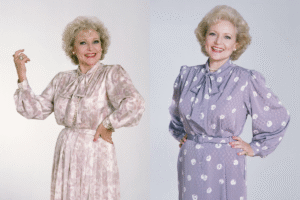
Rose and Sexuality
Innocence Versus Experience
Rose’s approach to sexuality created interesting contrasts with Blanche’s overt sexuality and Dorothy’s more reserved approach. Rose wasn’t asexual or prudish; she had five children and spoke fondly of her physical relationship with Charlie. However, her presentation of sexuality was wrapped in innocence and traditional values.
Post-Charlie Intimacy
Rose’s struggle with physical intimacy after Charlie’s death, particularly given how he died, provided realistic portrayal of widowhood and aging sexuality. Her fear that she might cause another man’s death during intimacy was both comedic and poignant, representing real anxieties about aging bodies and sexuality.
Sexual Agency
Despite her innocent presentation, Rose demonstrated sexual agency. She made choices about when and with whom to be intimate, set boundaries, and expressed desires. This showed that traditional values and personal agency weren’t mutually exclusive.
Rose’s Impact on Her Roommates
Teaching Through Example
Rose’s influence on her more cynical roommates was profound. Her kindness often inspired them to better behavior. Her optimism provided balance to their pessimism. Her simple solutions sometimes proved more effective than their complex schemes.
Emotional Support
Rose’s emotional availability made her the household’s unofficial therapist. Her willingness to listen without judgment, to offer comfort without conditions, and to maintain confidences made her a safe space for her roommates’ vulnerabilities.
Cultural Exchange
The culture clash between Rose’s St. Olaf background and her roommates’ urban experiences created opportunities for growth on all sides. Rose learned about city life, other cultures, and different ways of being in the world, while teaching her roommates about rural values, Scandinavian traditions, and different forms of intelligence.
The St. Olaf Community in Miami
Maintaining Connections
Rose’s efforts to maintain connections with other St. Olaf expatriates in Miami showed the importance of community for immigrants and transplants. These connections provided cultural continuity and support networks that helped Rose maintain her identity while adapting to new circumstances.
Cultural Events
The various St. Olaf reunions and cultural events Rose attended or organized showed active cultural preservation. These events, while often played for comedy, represented real needs for cultural connection and community that many immigrants experience.
Rose’s Relationship with Modern Life
Technology and Progress
Rose’s interactions with modern technology and urban life provided consistent comedy but also commentary on rapid social change. Her confusion about contemporary life wasn’t just personal but generational, representing older adults’ challenges in adapting to technological and social changes.
Maintaining Traditional Values
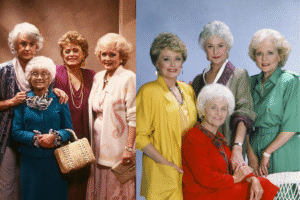
Despite living in modern Miami, Rose maintained traditional values about family, community, and morality. Her ability to hold these values while accepting others’ different choices showed philosophical sophistication and genuine tolerance.
Rose’s Legacy in Television History
Influence on Character Development
Rose Nylund influenced how television writers approached similar characters. She proved that seemingly simple characters could have depth, that kindness could be interesting, and that different types of intelligence deserved respect. This influence is visible in subsequent shows that featured naive but wise characters.
Betty White’s Career Renaissance
The role of Rose Nylund revitalized Betty White’s career, leading to decades more of beloved performances. The character showed White’s range and established her as America’s sweetheart, a position she maintained until her death.
Cultural Icon
Rose became a cultural icon, referenced in other media, quoted in everyday conversation, and beloved by generations of viewers. Her St. Olaf stories, her unique perspective, and her unshakeable optimism became part of American cultural consciousness.
The Golden Palace and Beyond
Continuing Rose’s Story
In the short-lived sequel series “The Golden Palace,” Rose’s character continued to evolve as she helped run a hotel with Blanche and Sophia. This new challenge showed Rose adapting to yet another major life change, demonstrating the resilience that defined her character.
What Rose Represented
Rose represented hope for aging adults facing major life transitions. She showed that starting over was possible at any age, that new families could be formed, that joy could be found after loss, and that growth and learning never stop.
Conclusion: The Enduring Appeal of Rose Nylund
Rose Nylund remains one of television’s most beloved characters because she represented the best of humanity without being unrealistic about its challenges. Through Betty White’s brilliant performance, Rose showed that kindness is strength, that different types of intelligence have value, that maintaining optimism in the face of hardship is heroic, and that joy can be found in simple things.
Her character challenged assumptions about aging, intelligence, and rural American culture. She proved that women in their 60s could be fully realized characters worthy of audience investment. She demonstrated that comedy and depth weren’t mutually exclusive, that a character could be simultaneously funny and profound.
Rose’s stories from St. Olaf, initially seeming like mere comic relief, revealed deeper truths about community, tradition, and the human need for narrative and connection. Her ability to find wisdom in absurdity and meaning in simplicity offered a different way of understanding the world, one that valued emotional truth over factual accuracy.
The friendship between Rose and her roommates at 6151 Richmond Street showed that families can be chosen, that differences can strengthen rather than divide, and that love comes in many forms. Rose’s particular contribution to this chosen family—her optimism, kindness, and emotional availability—proved essential to its functioning.
For older viewers, particularly women, Rose provided representation and hope. She showed that widowhood wasn’t an ending but a transition, that starting over was possible, that new love could be found, and that life after 60 could be an adventure rather than a decline.
Rose’s influence extends beyond entertainment into social consciousness. She helped change perceptions about aging, about rural American culture, and about the value of kindness in an increasingly cynical world. Her character argued for a more inclusive understanding of intelligence and wisdom, one that valued emotional intelligence and lived experience alongside formal education.
As television continues to evolve, Rose Nylund’s legacy persists. She proved that audiences hunger for characters who represent hope without naivety, kindness without weakness, and simplicity without stupidity. In a media landscape often dominated by antiheroes and cynicism, Rose’s genuine goodness and optimism remain revolutionary.
Rose Nylund taught us that everyone has a story worth telling, even if it involves herring circuses or butter queens. She showed that maintaining wonder and joy in one’s golden years isn’t just possible but admirable. Most importantly, she demonstrated that being underestimated can be a source of power, that kindness can be a form of wisdom, and that the heart’s intelligence is as valuable as the mind’s.
From St. Olaf to Miami, from widow to adventure-seeker, from innocence to wisdom, Rose Nylund’s journey resonated with millions because it was ultimately about resilience, growth, and the courage to remain open-hearted in a sometimes harsh world. Her legacy lives on in every character who chooses kindness over cleverness, in every story that finds wisdom in simplicity, and in every viewer who learned from Rose that optimism isn’t denial—it’s a choice, and often the bravest one we can make.
